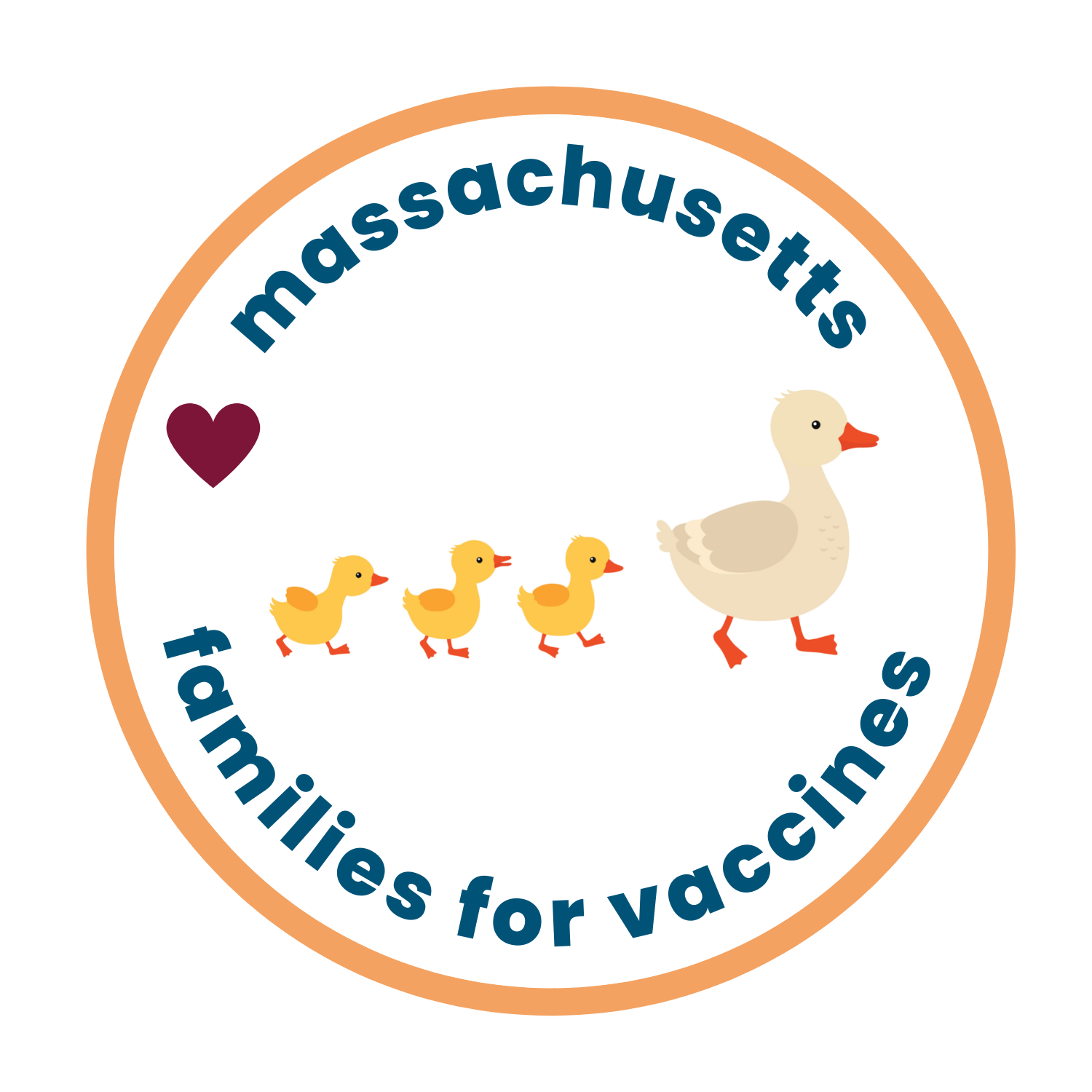
Facts about S.1391 and H.604
The Massachusetts legislature will soon hear bills that would eliminate non-medical exemptions to the routine vaccines for children required for school entry. The following talking points are intended to help you understand why these bills matter so much to our kids and communities.
1. Pro-vaccine voters are the vast majority in Massachusetts (1); most people are immunized and vaccinate their children.
2. All states require vaccination of children enrolling in public schools, state-funded day care, and often private schools, and allow parents to exempt their children from vaccination for medical reasons (2). West Virginia, Mississippi, California, New York, Maine, and Connecticut have successfully eliminated loopholes for religious or philosophical reasons (3).
3. The ease in obtaining non-medical vaccine exemptions is positively correlated with with lower vaccine coverage (4). Simply stated: Loopholes in vaccine laws put us at risk for deadly diseases.
4. Communities of color, low-income, and rural populations are disproportionately affected by vaccine-preventable disease (5) due to systemic inequities in social determinants of health, including discrimination, limited access to healthcare, increased likelihood of exposure in essential worker settings, and gaps in education and income (6).
5. In 2020-2021, a smaller number of U.S. children got routine vaccinations required for kindergarten (7), raising concerns that rates of extremely contagious diseases such as measles, whooping cough, and chickenpox could increase.
6. No major religion practicing in the United States prohibits immunization (8). In fact, Christian (9), Muslim (10), and Jewish (11) faiths agree that vaccines are part of a holy obligation to care for our God-given bodies and to protect the vulnerable.
7. It is estimated that vaccines given to children born between 1994-2016 will prevent an estimated 381 million illnesses, 24.5 million hospitalizations, 855,000 deaths, and $1.65 trillion in total societal costs (12).
8. Vermont removed only philosophical objections for school entry in 2016-2017, keeping religious exemptions. According to the Vermont Department of Health, religious exemptions jumped from 0.9% in 2015-16 to 3.7% in 2016-17 after the philosophical exemption was removed (13).
9. Maine removed religious and philosophical objections for school entry in 2020 after a statewide vote supported by 72% of the electorate (14). While most states saw immunization rates decline for children during the COVID-19 pandemic, Maine's rates of children protected and ready for school improved significantly (15).
(1) Becker’s Hospital Review: States ranked by percentage fully vaccinated
(2) National Conference of State Legislatures: States With Religious and Philosophical Exemptions from School Immunization Requirements
(3) Ibid.
(4) Delaware Journal of Public Health: Towards Eliminating Nonmedical Vaccination Exemptions Among School-Age Children
(5) CDC’s Office of Minority Health & Health Equity: What is Equity?
(6) Massachusetts COVID-19 Vaccination Dashboard: Weekly COVID-19 Municipality Vaccination Data
(7) US News & World Report: Rates for Measles, Other Vaccinations Dip for Kindergartners
(8) Vanderbilt University Medical Center Occupational Health Clinic: Immunizations and Religion
(9) California Catholic Conference: Catholic Moral Teaching and Tradition on COVID-19 Vaccines
(10) Frontiers in Tropical Diseases: Sharia (Islamic Law) Perspectives of COVID-19 Vaccines
(11) National Jewish Health: COVID-19 Vaccines
(12) Forbes: Measles Outbreak in Dollars and Cents: It Costs Taxpayers Bigtime
(13) Rutland Herald: Bill would remove religious exemption for vaccinations
(14) The Wall Street Journal: Maine voters keep tightened vaccine requirements
(15) The Pew Charitable Trusts: Child Vaccination Rates Already Down Because of Covid Fall Again

